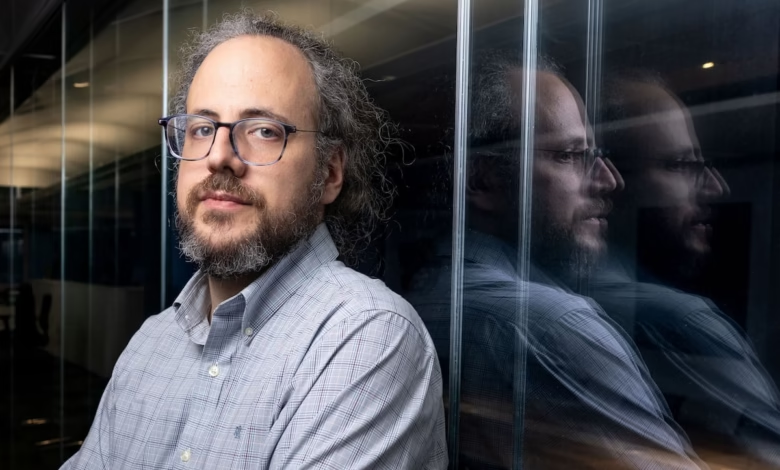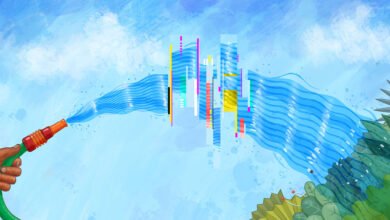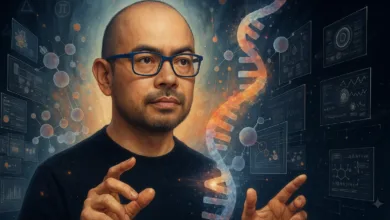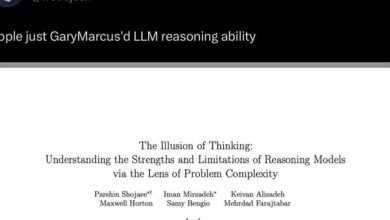Spanish Mathematician & DeepMind Tackle $1M Navier-Stokes Puzzle

▼ Summary
– Javier Gómez Serrano, a mathematician from Madrid, is collaborating with Google DeepMind to solve the Navier-Stokes equations, a Millennium Prize Problem offering a $1 million reward.
– The Navier-Stokes equations, formulated in the 19th century, describe fluid motion but remain unsolved, with implications for weather prediction, aerodynamics, and medical research.
– Gómez Serrano’s team uses AI and machine learning to refine solutions, distinguishing their approach from traditional methods and competing groups worldwide.
– Google DeepMind’s AlphaEvolve, co-developed by Gómez Serrano, solves complex math problems with 95% accuracy, significantly accelerating research efficiency.
– While AI advancements like AlphaEvolve promise transformative impacts, opinions vary on the timeline for achieving artificial general intelligence and its societal implications.
A Spanish mathematician has joined forces with Google DeepMind in an ambitious attempt to crack one of science’s toughest challenges, the Navier-Stokes equations, a puzzle so complex it carries a $1 million prize for its solution. Javier Gómez Serrano, a 39-year-old professor at Brown University, leads a team of researchers leveraging artificial intelligence to tackle this centuries-old problem, which could revolutionize fields from meteorology to aerodynamics.
The Navier-Stokes equations, formulated in the 19th century by Henri Navier and George Stokes, describe how fluids like water and air behave under various conditions. Despite their importance in predicting weather patterns, aircraft performance, and even blood flow, mathematicians still don’t fully understand whether these equations always produce smooth solutions or if they can suddenly generate chaotic behavior, like a tsunami appearing in calm waters.
Gómez Serrano’s collaboration with DeepMind marks a significant shift in approach. While traditional methods have struggled, his team employs machine learning neural networks to analyze fluid dynamics more efficiently. Their work builds on a 2014 breakthrough by Thomas Hou’s team at Caltech, which simulated a simplified version of the problem. By refining these findings with AI, Gómez Serrano’s group has made rapid progress, fueling optimism that a solution could emerge within the next five years.
Competition is fierce, with only a handful of teams worldwide seriously contending for the prize. Among them are Hou’s group, a duo of Egyptian and Italian mathematicians in the U.S., and a Madrid-based team led by Diego Córdoba, Gómez Serrano’s former PhD advisor. What sets the Spanish researcher’s approach apart is the strategic use of AI, a tool he believes could be the key to unlocking the mystery.
Beyond Navier-Stokes, Gómez Serrano has contributed to another groundbreaking AI project: AlphaEvolve, a system capable of solving complex mathematical problems with remarkable efficiency. Developed alongside renowned mathematician Terence Tao, the program achieves a 95% success rate, often matching or surpassing human experts. Unlike specialized AI models, AlphaEvolve functions as a versatile language model, tackling diverse mathematical challenges without prior training in specific domains.
DeepMind’s advancements, including AlphaFold2, a Nobel Prize-winning protein-folding tool, highlight AI’s growing role in scientific discovery. While DeepMind CEO Demis Hassabis predicts artificial general intelligence could emerge by 2030, Gómez Serrano remains cautiously optimistic. He envisions AI as a transformative force, accelerating research and deepening humanity’s understanding of nature, though he dismisses dystopian fears, emphasizing its potential for breakthroughs in medicine and materials science.
As the race to solve Navier-Stokes intensifies, Gómez Serrano’s work exemplifies how cutting-edge technology is reshaping mathematics. Whether AI delivers the final answer or not, its impact on scientific inquiry is undeniable, and the million-dollar question may soon have a solution.
(Source: ElPais English)





